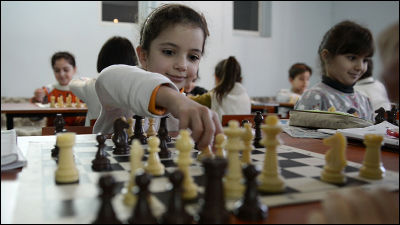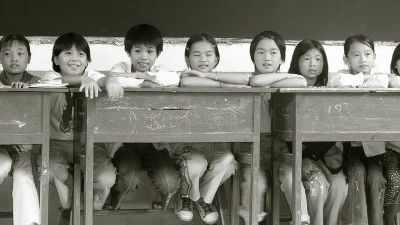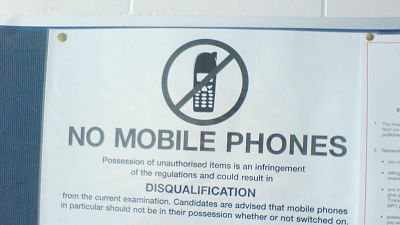What is "PBL", an educational system that is not confined to newly introduced subjects by educated developed countries Finland?

ByU. S. Department of Agriculture
World-class educational levelFinland boasts, but newly "PBL"We introduced the education system called August 2016. British television station BBC is investigating PBL which can not learn about the framework of subjects but can learn multiple things in one lesson.
Could subjects soon be a thing of the past in Finland? - BBC News
http://www.bbc.com/news/world-europe-39889523

Children in Finland have a high level in the international academic achievement survey for nearly the past 20 years, and why does child's academic ability become so high with such conditions as fewer class days, longer vacation, relatively light homework, no test? That was the attention of researchers all over the world. The Organization for Economic Cooperation and Development (OECD)Academic achievement announced in December 2016Singapore monopolizes first place in mathematics, language and science, Finland has disappeared from the top three,It is still ranked higher in rank.
This Finnish reform of school education, from August 2016 incorporating lesson of collaborative meaning. In this education called phenomenon-based learning (PBL), children select the topic that matched themselves and start on the subject based on that topic. And in this lesson, children will jump out of school, listen to experts and visit museums.
For example, in a class of 12-year-old children at a school, teachers use interactive electronic boards to show the children a reproduction image that the mountains of Italy's Vesuvius erupt and destroy the city of Pompeii. After that, children divided into groups were handed out laptops, group 1 compares the form of land of ancient Rome and current Finland using laptops, group 2 compares the Roman public bath with the current spa In Group 3, we compare the Colosseum of ancient Roman times with the contemporary stadium. Children in each group become experts on one thing, and then you can share knowledge throughout the class by making a presentation. And in this history class, children finally print 3D buildings etc studied by themselves and use it in board game to be held in class.
This is one form of class of history that children do by choosing each topic. Children will learn about technology that handles technology in one lesson, and research on research, communication, and cultural understanding.
In another class with the theme of "immigration", 15-year-old Aleksis Stenholm got out of school, gathered the voice of the people who town, interviewed those who asylum seekers visiting neighboring immigration centers It was. In addition, he sometimes shares his findings with students from German schools who have problems with immigration using movies. In classes beyond such a school framework, students will react, think, question, exchange opinions.
And at the educational site, teachers at school will not be nervous about the use of children's smartphone. By incorporating smartphones into education, we can learn that smartphones are "tools for communicating with friends" to "useful tools for research."
As you can see from the example above, PBL is a class that aims to make active use of children of the 21st century, which is closely related to technology since birth. Kirsti Lonka who studies psychology of education at the University of Helsinki said, "Traditional education is decided mainly by" matters worn by children "like mathematics and grammar and" predefined course list " However, in real life, we do not think clearly by delimiting according to the rules, but think more holistically.In addition, when children are concerned with environmental problems, immigration, economy,Post-truth politicsIt is impossible for adults to give tools for solution when thinking about problems in the real world. The biggest mistake is that adults make children believe that "the world is simple" and that they think "certain facts" about what they will experience. Learn to think and understand. This is an important skill, making learning "fun" and promoting a better life. "

ByTookapic
Meanwhile, opposition from domestic voices has also been raised for PBL. Children in Finland have had a small disparity in academic ability so far, but one opinion is that PBL will result in academic difference. Jussi Tanhuanpaa, a physics teacher, said, "This teaching method demonstrates its power to clear-cut children who can understand what they know from the experience. If you can learn freely and prepare, you will be able to proceed to the next step but there are children who do not understand themselves well and need more instructions.The disparity of these children spreads and works in a bad direction I am afraid to do it. " In addition, the concern is that the system will be disadvantageous for elderly teachers who are not bright on technology. Also, Jari Salminen, who is conducting research at the Faculty of Education at the University of Helsinki, points out that similar educational systems that took place in the past 100 years have failed.
Of course, because the Finnish Office of Education understands these points, it seems that PBL will be introduced at a slow pace as of 2017 as only one PBL implementation per year is required for schools . Also, there is no plan to measure academic achievement etc in the whole country in order to ascertain the effect of PBL at the present time, and the result is to be clarified in the international academic achievement survey.

ByJose Carrillo Cabrera
Related Posts:
in Note, Posted by darkhorse_log







